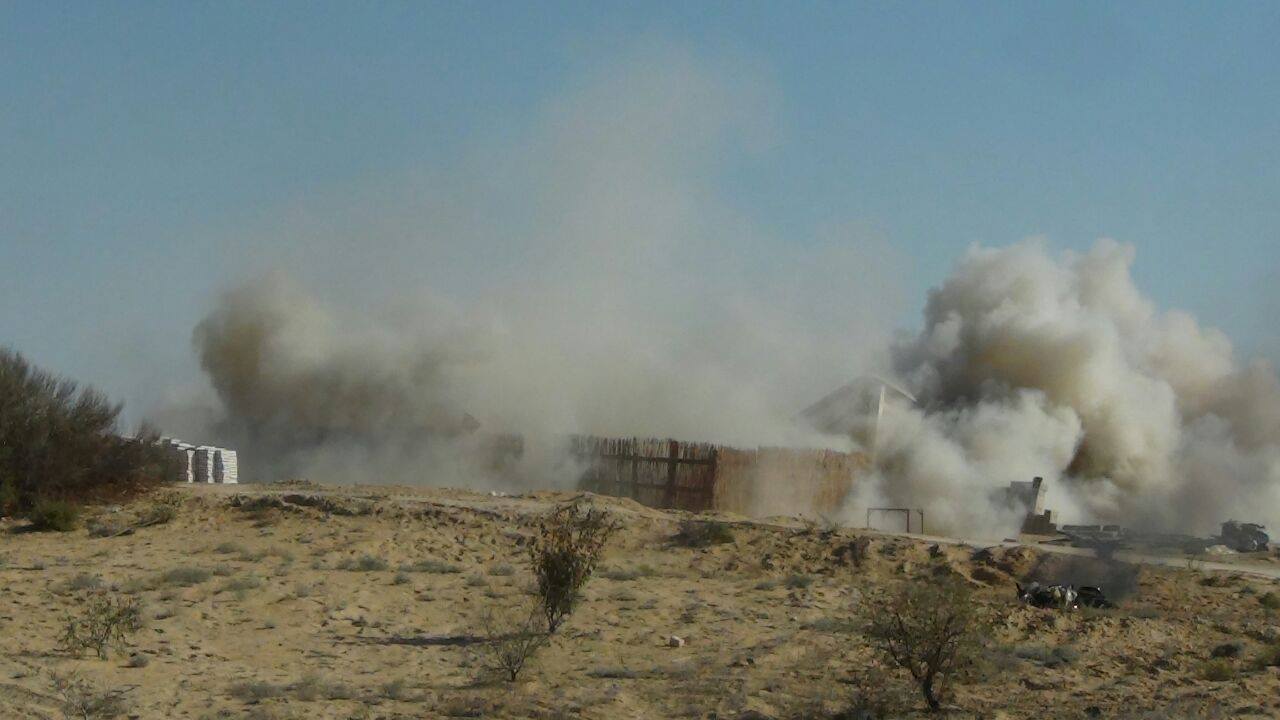Latest NEWS
- Aswat Masriya, the last word
- Roundup of Egypt's press headlines on March 15, 2017
- Roundup of Egypt's press headlines on March 14, 2017
- Former Egyptian President Hosni Mubarak to be released: lawyer
- Roundup of Egypt's press headlines on March 13, 2017
- Egypt's capital set to grow by half a million in 2017
- Egypt's wheat reserves to double with start of harvest -supply min
- Roundup of Egypt's press headlines on March 12, 2017
Egypt's Sisi ratifies anti-terrorism law

File photo of the aftermath of a military operation in North Sinai. Courtesy of the army spokesman.
CAIRO, Aug 17 (Aswat Masriya) - Egyptian President Abdel Fattah al-Sisi ratified the anti-terrorism law on Sunday, which issues the green light for a series of new penalties that can be applied onto people involved in terror-related activities.
The newly approved law assigns the death penalty for a dozen crimes, including founding a terrorist organisation or taking up a leading position in one.
The cabinet passed a draft of the law and referred it to the State Council in July, on the same day that militants in Sinai escalated their attacks on security forces in the peninsula, killing at least 17 security personnel.
The law has since become the centre of criticism by local and international rights groups, with Egypt's press syndicate being one its most vocal critics.
Rights groups have feared that the law expands the definition of terrorism and that it will restrict press freedom. Amnesty International has described the law as "repressive".
Among the most controversial aspects of the law is how it may affect the media's ability to cover news on terrorist attacks.
Originally, the law punished the publishing of "false news or data" which contradict official data on "terrorist operations" by prison. This prompted the press syndicate to describe the law as containing "dangerous" articles, citing this one among several others.
The cabinet eventually amended the article, scrapping off the prison sentence and assigning a fine of between 200,000 and 500,000 Egyptian pounds (around $25,550 and $63,874) for anyone who intentionally publishes "untrue statements" on terrorist incidents inside the country or counter-terrorism operations, "in violation of official statements by the Ministry of Defence."
The amended article was not the only one to receive criticism. In July, 17 rights groups said the law imposes an "indefinite, undeclared state of emergency and establishes an exceptional, parallel judiciary."
As per the anti-terrorism draft law the president may take the "necessary procedures to preserve security and public order" when there is a risk associated with terrorism.
These procedures may include evacuation, isolation or imposing a curfew on some regions, provided that the president's decision specifies the region and that the decision does not last for longer than six months.
The Egyptian cabinet, however has maintained that the law achieves "swift and just deterrence."










